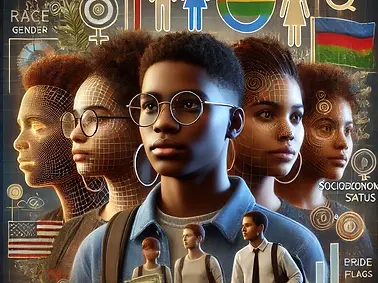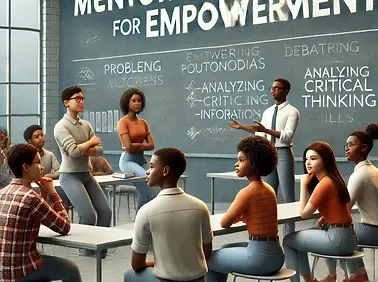Inclusive Mentoring Resources
Explore a comprehensive collection of resources on inclusive mentoring, designed to support mentors and educators in fostering equitable and culturally competent mentoring relationships. Curated by experts from Morgan State University and partner institutions (University of California, Santa Cruz, North Carolina State University and Jackson State University) these resources offer practical strategies, research insights, and tools to enhance diversity and inclusion in engineering and other fields. Sponsored by the National Science Foundation's Broadening Participation in Engineering program.


01
Cultural Competency in Inclusive Mentoring
Cultural competency refers to the ability to understand, communicate with, and effectively interact with people across cultures (Sue & Sue, 2016). In the context of mentoring, cultural competency is crucial as it fosters an environment where both mentors and mentees from diverse backgrounds can engage meaningfully. Click here to download file >>>
02
Identity Development in Inclusive Mentoring
Understanding these stages of racial identity development is crucial for mentors because it allows them to tailor their support to the specific needs of their mentees. For example, a mentee in the Encounter stage may need validation and support in processing their experiences of racism, while a mentee in the Internalization stage may benefit from opportunities to engage in leadership and advocacy roles. Click here to download file >>>


03
Mental Health and Well-being in Inclusive Mentoring
Mentors play a critical role in addressing the impact of trauma on their mentees. Understanding the signs of trauma and being prepared to support students in managing stress and anxiety are essential aspects of this role. Mentors should create a safe and supportive environment where students feel comfortable discussing their experiences and emotions. Click here to download file >>>
04
Navigating Academic Spaces in Inclusive Mentoring
Systemic barriers are the historical and institutional obstacles that disproportionately impact Black American students in academic environments. These barriers often stem from long-standing practices, policies, and attitudes that have marginalized Black students and limited their access to resources and opportunities. Click here to download file >>>


05
Advocacy and Allyship in Inclusive Mentoring
Advocacy is a critical component of effective mentoring, particularly for Black American students who may encounter systemic barriers in academic and professional settings. As advocates, mentors take on the responsibility of speaking up for their mentees, ensuring that their voices are heard and their needs are met. Click here to download file >>>
06
Career Development in Inclusive Mentoring
Networking is a critical component of career development, providing students with access to opportunities, resources, and connections that can significantly impact their professional trajectories. For Black American students, gaining access to these networks and opportunities can be challenging due to systemic barriers and underrepresentation in many industries Click here to download file >>>


07
Community and Belonging in Inclusive Mentoring
A strong sense of belonging is essential for student success, particularly for students from underrepresented groups such as Black and Hispanic students. Belonging is closely tied to academic persistence, well-being, and overall satisfaction in educational settings. Click here to download file >>>
08
Academic and Social Capital in Inclusive Mentoring
Academic capital refers to the knowledge, skills, and strategies that students need to succeed in their educational pursuits. For Black American students, building academic capital is particularly important as they navigate environments that may not always be supportive or inclusive. Click here to download file >>>


09
Intersectionality in Inclusive Mentoring
Intersectionality is a framework for understanding how various aspects of a person's identity, such as race, gender, socioeconomic status, sexual orientation, and more, can intersect and create overlapping forms of discrimination or disadvantage. For Black American students, the intersection of these identities can lead to unique challenges that are not fully captured when considering each identity in isolation. Click here to download file >>>
10
Mentoring for Empowerment in Inclusive Mentoring
Empowerment in the context of mentoring involves providing students with the tools, support, and encouragement they need to take ownership of their educational journey and career paths. Empowering students means fostering autonomy, helping them build confidence in their abilities, and guiding them to become leaders in their own right. This approach is particularly important for Black American students, who may face systemic barriers that can undermine their sense of agency and self-efficacy. Click here to download file >>>

